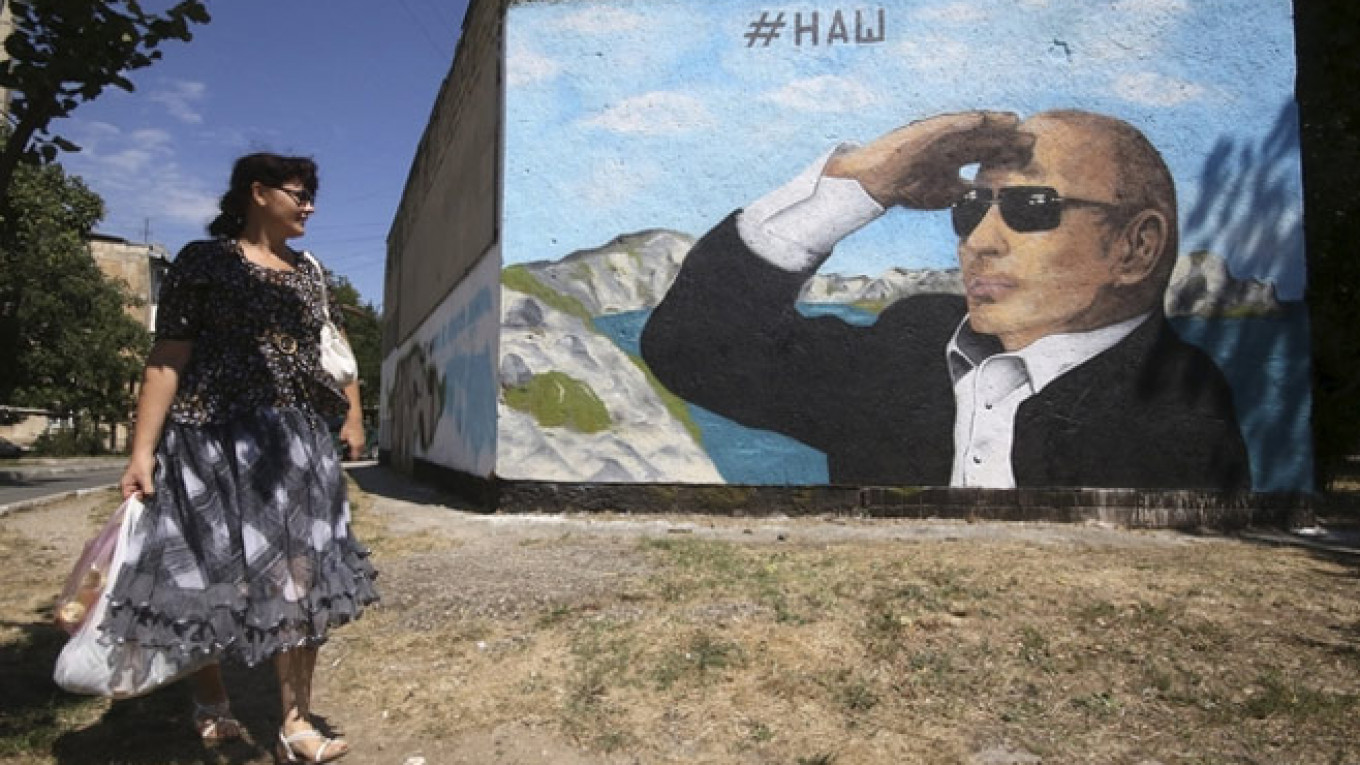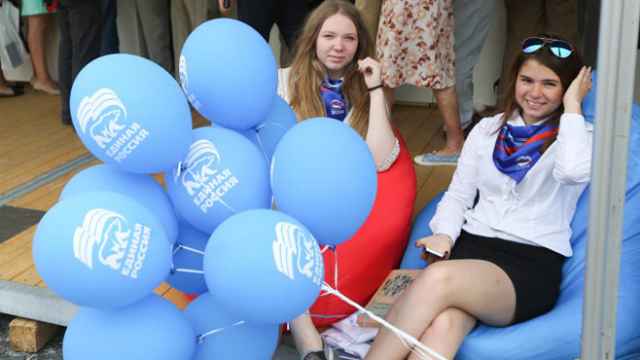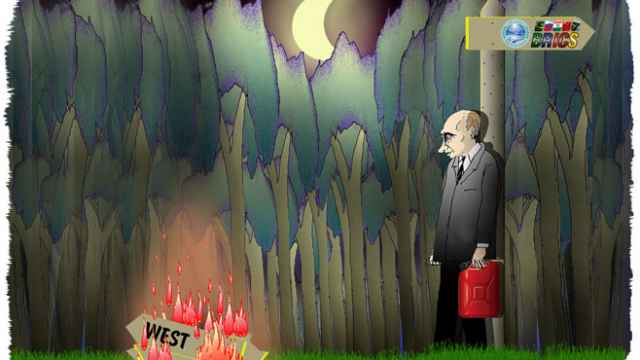President Vladimir Putin has built up huge reserves of popular support during his 15 years in power. This is due not only to his systematic use of propaganda, his monopoly on power and the selective repression of his opponents. Putin's popularity primarily derives from the unprecedented prosperity that Russian citizens have achieved over the past decade and a half.
Many Russians still remember the squalor of Soviet life with its constant shortages of everything other than bread and vodka. And more recently, they remember the ration coupons for soap during the perestroika years as well as the poverty and chaos of the 1990s, with its raging hyperinflation and the way millions of people often waited for months to receive their salaries and pension payments.
Russians consider the years under President Vladimir Putin — with their consumer frenzy, mortgages and bank loans for everyone, hypermarkets popping up like mushrooms, abundance of food and consumer goods on store shelves and constantly rising incomes — as a genuine economic miracle.
Sergei Karaganov, head of Russia's independent Council for Foreign and Defense Policy think tank, frequently states that in their entire 1,000-year history Russians have never enjoyed such plenty as they have under Putin — not under the tsars and not under the Communist Party.
Add to that the Winter Olympics in Sochi, the annexation of Crimea and the resounding anti-U.S. rhetoric combined with the magnificent military parades on Red Square and the result is Putin's notoriously high confidence rating of 89 percent.
Of course, senior and junior officials stole hundreds of billions of dollars in countless state corporations and organizations, sending that money abroad or converting it into luxury items and expensive food and drink.
But the Russian people still received quite a lot from that windfall of trillions of dollars in oil and gas income over the years. And although the people knew full well that their elected officials were absconding with enormous sums, they never complained.
Tracking down and exposing such culprits is a difficult and even dangerous task. The people consider it the right of the authorities to decide how to distribute that money. Of course they will pocket the best and largest bits for themselves, but that is the nature of "public service" in Russia. The main thing is that they leave some juicy scraps for the ordinary folk.
That windfall resulting from high oil prices and other favorable factors not only enabled thousands of officials and businesspeople to enrich themselves, but also made it possible for the government to accumulate huge cash reserves. Those reserves helped Russia practically sidestep the economic crisis of 2008-2009 unscathed, with no noticeable hardship to the people. What's more, average incomes actually grew during that period, despite the sharp drop in the gross domestic product.
And now, for the first time in Putin's reign, the situation has changed dramatically. The crisis is dragging on annoyingly and no end is in sight. Russia is literally slipping downward along an invisible staircase. Each downturn is followed by a brief period of stability before a new recession hits. And that has been the pattern for the past 18 months.
The average citizen has yet to complain. He patiently waits for the authorities to take the appropriate measures and correct everything — and without the need for him to get involved. Putin promised to cope with the crisis within two years. The people are willing to tread water and endure it for two years — especially because their National Leader always kept his word in the past.
The authorities know better. If they burn foreign ducklings and dispatch Cossacks carrying whips to seize illicit foreign cheese on supermarket shelves, they must have a good reason for it. The ordinary Russian is willing to put up with such foolishness for the good of the cause.
However, no one knows how ordinary Russians will behave if the crisis becomes protracted and the situation steadily erodes their standard of living. In the same way, no one knows how Putin will behave: after all, this is an entirely new situation for him.
Will his ratings drop and general discontent rise? Will people respond to calls from the opposition and turn out for mass demonstrations? Will the ruling party suffer election losses, as it almost did in 2011? Will the authorities respond with greater repression or more democracy? Will they institute a new economic policy? No one knows.
For now, the crisis is entering its most acute phase — the deepest and most protracted decline in oil prices, the fall in gas production and revenues from its sale, the shrinking of federal coffers and forced spending cuts.
Russia's gold and currency reserves have dropped from their peak of $600 billion in 2008 to $360 billion today. Gross domestic product has dropped by 3.4 percent since last year. Investment continues to decline.
The car market is in a shambles and construction starts are down. Real incomes were 9.2 percent lower in July than one year ago. Average monthly salaries have dropped from $1,200 in 2013 to only $500 now, adjusted for the ruble's devaluation. Another 20 million Russians will fall into poverty this year, an increase of 14 percent since last year.
Chronic crisis — now that's something new under President Putin.
Vladimir Ryzhkov, a State Duma deputy from 1993 to 2007, is a political analyst.
A Message from The Moscow Times:
Dear readers,
We are facing unprecedented challenges. Russia's Prosecutor General's Office has designated The Moscow Times as an "undesirable" organization, criminalizing our work and putting our staff at risk of prosecution. This follows our earlier unjust labeling as a "foreign agent."
These actions are direct attempts to silence independent journalism in Russia. The authorities claim our work "discredits the decisions of the Russian leadership." We see things differently: we strive to provide accurate, unbiased reporting on Russia.
We, the journalists of The Moscow Times, refuse to be silenced. But to continue our work, we need your help.
Your support, no matter how small, makes a world of difference. If you can, please support us monthly starting from just $2. It's quick to set up, and every contribution makes a significant impact.
By supporting The Moscow Times, you're defending open, independent journalism in the face of repression. Thank you for standing with us.
Remind me later.








